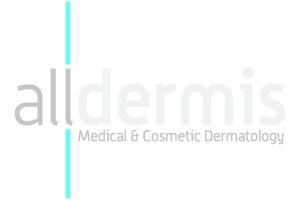Have Questions?
FAQ’s
If you do not see your question addressed below, please reach out via the contact form at the bottom of this page.
Frequently Asked Questions
Does insurance cover cosmetic services?
In most cases, insurance does not cover cosmetic services. As a general rule, anti-aging treatments such as Botox and filler as well as hair rejuvenation procedures are NOT covered. However, many acne appointments are covered by insurance. When in doubt, we highly recommend contacting your insurer to clarify before receiving treatment.
Do you offer virtual appointments?
Yes! For your convenience, we do offer virtual appointments for existing patients when the situation allows. For new patients, or those whose concerns require in-person evaluation, we ask patients to come into the office.
Can I have a cosmetic procedure done on the same day of my medical appointment?
We strongly encourage you to schedule all services in advance, including separate services performed on the same day. While it’s possible to squeeze an unplanned cosmetic procedure after a medical appointment, it is often difficult due to the appointments of other patients after you.
Where did Dr. Chan study and train?
Dr. Chan completed his undergraduate studies at Harvard, and earned a joint MD / PhD at Boston University. He then did his residency in dermatology at Ohio State University.
Has Dr. Chan participated in research?
Yes. At Boston University, his research focused on the development of innovative therapies to target specific cancer cells using recombinant fusion proteins. After medical school, he was the recipient of an NIH-funded training grant under the mentorship of Kevin Cooper, MD, focusing upon mechanisms of psoriasis and also conducted clinical studies regarding cutaneous lymphomas. He is also a reviewer for the Archives of Dermatology and Clinical Cancer Research.
Do I need to do anything in advance or bring anything with me to my appointment?
Yes. If you are a new patient, please have your patient paperwork completed online in before your appointment. In addition, if you have any products or prescriptions that you would like to discuss with the doctor, it is often helpful to bring those with you.
Common Concerns, Addressed
Here are a few of the common questions we get related to specific conditions. As always, there is nothing like an in-person evaluation, so we recommend booking an appointment for the best advice.
What Causes Acne?
Acne occurs when pores become blocked by a build-up of dead skin cells, dirt, and bacteria, which causes the skin to break out in whiteheads, blackheads, and papules (small, red bumps). It usually appears on the face, neck, and back, although it can present on other areas of the body. Certain dietary habits (such as overconsumption of dairy, sugar, and processed foods) as well as stress, can cause systemic inflammation, making acne breakouts worse.

What Causes Hair Loss In Women?
It depends on the type of hair loss one is experiencing. For example, “telogen effluvium” hair loss is often caused by shock to the body, stress, thyroid issues, or certain medications. Female Pattern Hair Loss, on the other hand, is more commonly due to genetics, aging, and the onset of menopause. Coming in for a consulation and identifying the underlying factors of your hair loss is the first step toward developing a treatment plan.
What Causes Brittle, Unhealthy Nails?
Brittle nails can be a frustrating and unsightly issue for anyone to deal with. Oftentimes, brittle nails are caused by controllable factors such as overwashing / moisturizing with harsh products or poor nutrition. Sometimes, however, they are caused by systemic concerns such as Raynaud’s syndrome, low thyroid levels, fungus, or anemia. Based on your unique situation, we can perform an analyis and come up with a treatment plan to get your nails healthier.
What Causes Eczema? Do Certain Things Make it Worse?
The exact causes of eczema are still not fully understood. However, our current best understanding is that certain people are genetically predisposed to have dry, sensitive skin. This skin type, when combined with certain triggers, causes the inflamed, red skin that is associated with an eczema flare up. Known triggers that make eczema worse include certain chemicals, fabrics, cold / dry weather, and some food allergies such as dairy, eggs, and wheat.
